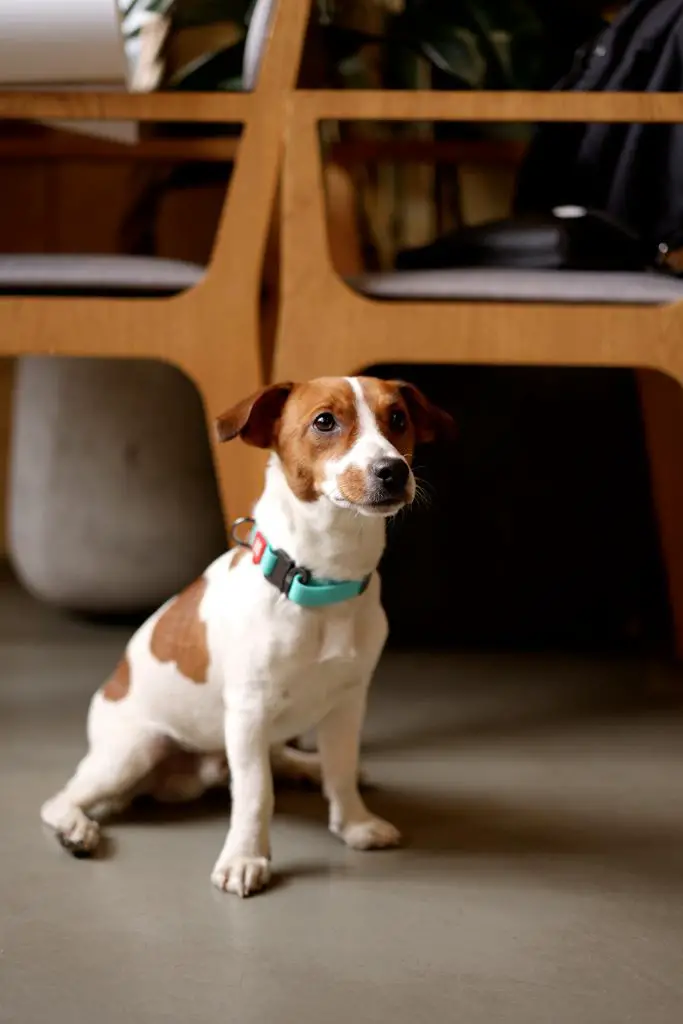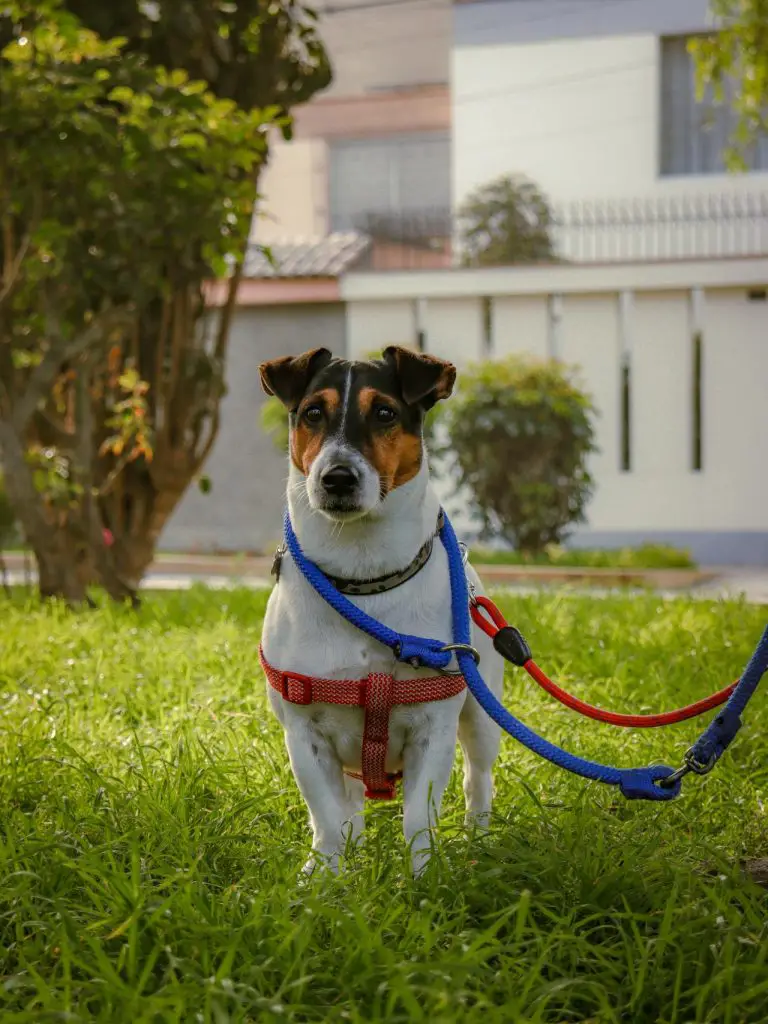
It seems your furry friend has a flair for interior decorating – with a penchant for scratching the floor, that is. You’re probably wondering why your dog insists on leaving their mark, literally, on your beautiful flooring. The truth is, there’s more to this behavior than meets the eye. It’s not just a matter of destruction or mischief; your dog’s scratching is likely serving a purpose, whether it’s to release tension, communicate with their pack, or even alleviate discomfort. But what’s really driving this behavior, and how can you address it?
Table of Contents
Marking Territory and Leaving Scent
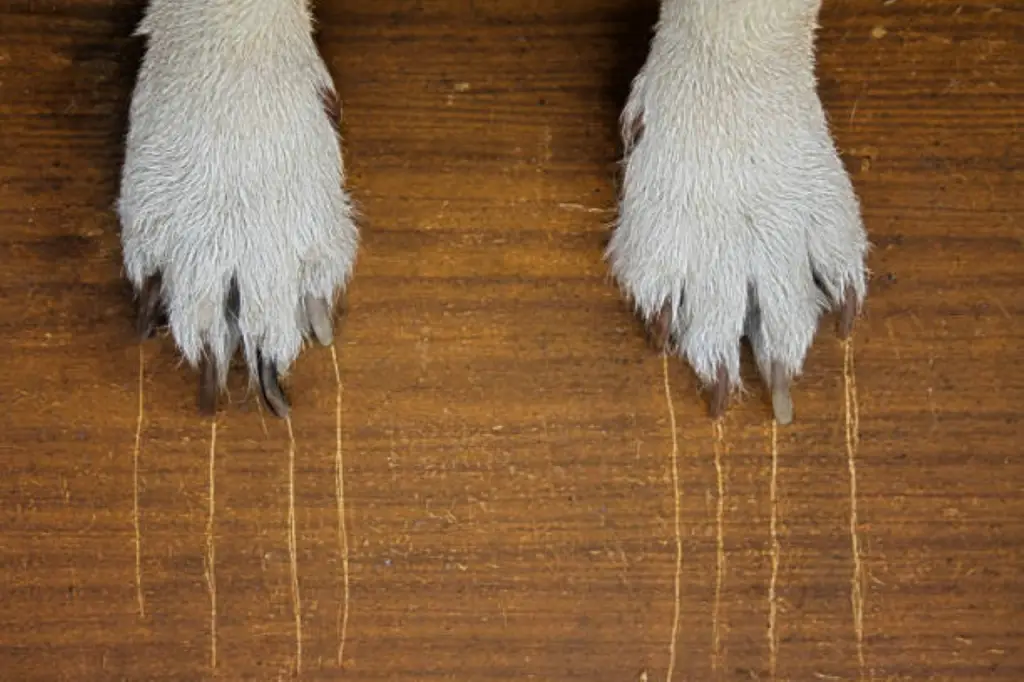
When your dog scratches the floor, it deposits scent glands from its paw pads, effectively marking its territory and communicating with other animals.
This behavior is an important part of canine communication, and it’s essential for you to understand its significance.
By scratching the floor, your dog is engaging in territorial marking, which allows it to claim ownership of its environment and establish a sense of familiarity and security.
As your dog scratches, it releases pheromones from its paw pads, which convey information about its identity, sex, reproductive status, and dominance status.
This post contains affiliate links. However all the information provided on this site are my own honest opinions. See more in Disclaimer.
This scent communication plays a crucial role in canine social behavior, as it helps your dog establish relationships with other dogs and even with you, its human family.
Exercise and Physical Release
You might’ve noticed that your dog tends to scratch the floor after a period of inactivity or when they’re bursting with pent-up energy.
By scratching the floor, your dog is able to burn off excess energy and engage their muscles in a physically demanding activity.
This behavior also helps your dog maintain flexibility and stretch their limbs, which is essential for their overall physical well-being.
Burning Excess Energy
Dogs scratch the floor as a way to expend excess energy, which accumulates when their physical activity isn’t sufficient to match their natural instinct to run, play, and engage in strenuous exercise.
You see, your furry friend needs to release pent-up energy, and scratching the floor is one way to do it. This behavior is often accompanied by playful antics, such as running around the house or jumping on furniture.
If you’re wondering why your dog is scratching the floor, it’s likely due to excess energy. Here are some reasons why:
- Insufficient Exercise: If your dog isn’t getting enough physical activity, they may scratch the floor to release tension.
- Breed Characteristics: Certain breeds, such as high-energy breeds, are more prone to scratching due to their natural instinct to run and play.
- Age and Development: Puppies, in particular, may scratch the floor as they develop and learn to regulate their energy levels.
- Lack of Mental Stimulation: Dogs need mental stimulation, and if they’re not getting enough, they may resort to scratching the floor as a way to release excess energy.
Stretching and Flexibility
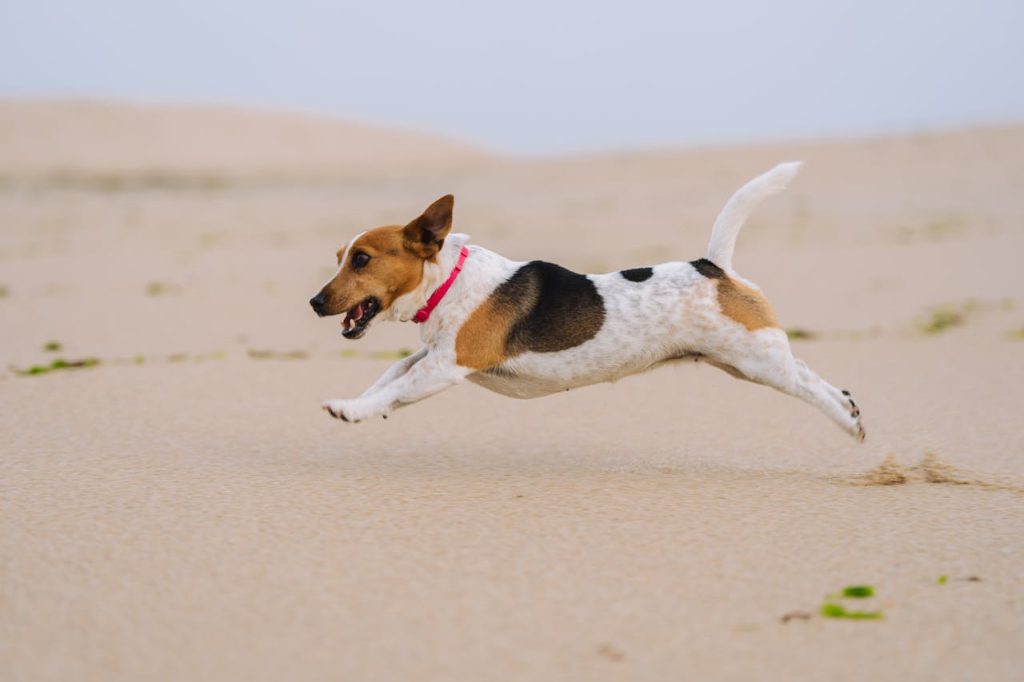
Scratching the floor serves as an essential means of physical release for your dog, allowing them to stretch and flex their muscles, particularly in the back, legs, and paws, after periods of rest or inactivity.
As your dog scratches, they’re engaging in flexibility exercises that help maintain their range of motion and prevent stiffness.
This is especially important for breeds prone to joint issues, such as hip dysplasia.
Anxiety and Stress Relief
Approximately 70% of canine behavioral problems stem from anxiety and stress, which can trigger floor scratching as a self-soothing mechanism.
If you’ve noticed your dog scratching the floor, it’s possible that they’re experiencing anxiety or stress.
As a responsible dog owner, it’s important to recognize the signs of canine anxiety and take steps to address it.
Here are 4 reasons why your dog might be scratching the floor due to anxiety and stress:
- Separation anxiety: Your dog might be scratching the floor when you leave the house or room, indicating separation anxiety.
- Noise phobias: Loud noises can trigger anxiety in dogs, leading to floor scratching as a coping mechanism.
- Environmental changes: Changes in your dog’s environment, such as moving or introducing new pets, can cause stress and anxiety, resulting in floor scratching.
- Lack of mental stimulation: Insufficient mental stimulation can lead to boredom and anxiety, causing your dog to scratch the floor.
Medical Issues and Discomfort
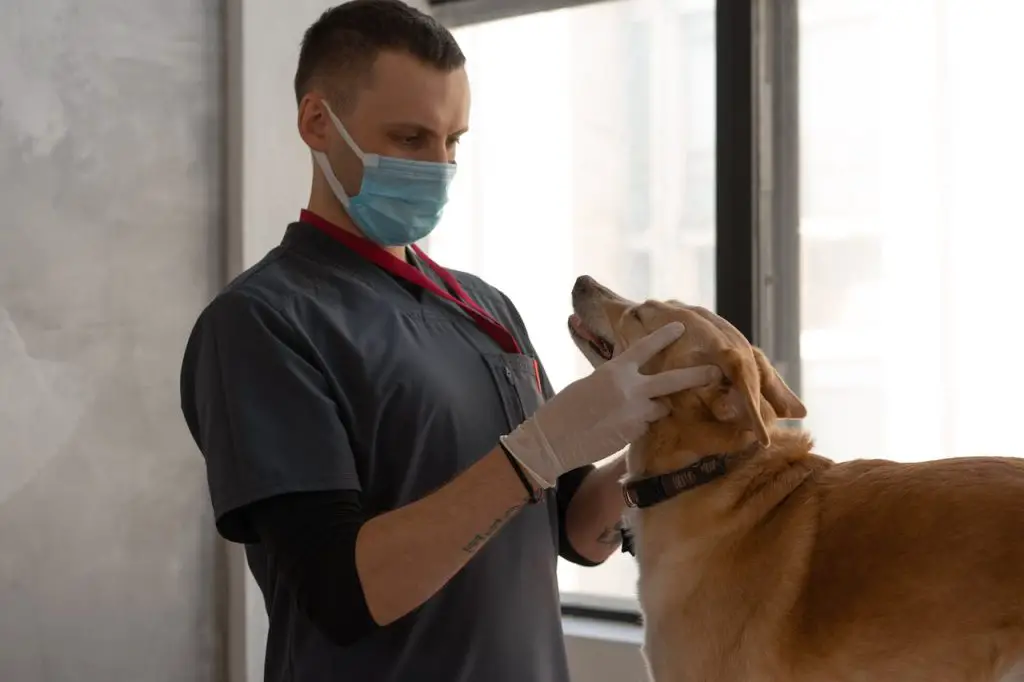
While anxiety and stress can contribute greatly to your dog’s floor scratching behavior, it’s also important to contemplate underlying medical issues that may be causing your dog discomfort and prompting them to scratch the floor.
Your dog may be experiencing skin allergies that cause intense itching and discomfort, leading them to scratch the floor in an attempt to relieve their symptoms.
As they scratch, they may inadvertently create further irritation, exacerbating the issue.
Joint pain is another common medical issue that can cause your dog to scratch the floor.
If your dog is suffering from arthritis or hip dysplasia, they may find it uncomfortable to lie down or stand up, leading them to scratch the floor as a way to stretch and relieve tension.
Alternatively, your dog may be scratching due to gastrointestinal issues or food sensitivities, which can cause discomfort and lead to scratching behavior.
Seeking Attention and Play

In addition to anxiety and medical issues, your dog’s floor scratching behavior can also be driven by a desire for attention and play.
They may associate the scratching action with a reaction from you or other household members. This attention-seeking behavior can be a result of your dog’s need for social interaction and validation.
By scratching the floor, your dog may be trying to initiate play or get a reaction from you.
Here are some possible reasons why your dog may be exhibiting attention-seeking floor scratching behavior:
- Playful scratching: Your dog may have learned that scratching the floor leads to playful interactions, such as chasing or fetching.
- Attention from household members: Your dog may have noticed that scratching the floor gets a reaction from family members, such as laughing or scolding.
- Social interaction: Your dog may be seeking social interaction and attention from you or other household members.
- Learned behavior: Your dog may have learned floor scratching behavior from observing other dogs or through reinforcement from you or other household members.
Boredom and Lack of Stimulation

One common cause of floor scratching behavior in dogs is boredom and lack of mental and physical stimulation, which can lead to destructive behaviors as your dog seeks ways to entertain themselves.
Dogs need mental stimulation and engaging activities to stay happy and healthy. When you leave your dog home alone, they may start to explore their surroundings in ways they shouldn’t.
Interactive toys are an effective solution in providing mental stimulation, such as puzzle feeders filled with treats and a Kong toy loaded with yummy snacks.
Exposing your dog to challenging interactive activities, such as these examples, will require creativity on your part. With consistency, your pets will stay occupied and productive most times.
You’d even witness them scratching the flooring less frequently without being told repeatedly and constantly to stop.
This is important since destructive habits aren’t good or useful for them during or just after training activities involving exercise, like playing fetch.
Therefore, offering and keeping them full before putting them in a crate, along with regular exercise, ensures that your pets stay happy and active, thus preventing them from engaging in destructive behaviors.
This approach guarantees that they will behave nicely in their crate.
Instinctual Behavior and Genetics
You may have wondered why your dog scratches the floor, even when it’s not necessary for comfort or exercise.
As it turns out, this behavior is often rooted in your dog’s ancestry, with traits from their wild ancestors still present in domesticated breeds.
Your dog’s instinct to scratch, for example, could be a remnant of the digging and burrowing behavior their ancestors used to catch prey or create shelter.
Ancestral Traits Remain
Genetics and instinctual behavior play a significant role in why dogs scratch the floor, as many of these actions are remnants of their ancestors’ survival strategies.
Your dog’s ancestors, such as wolves, used scratching to mark territories, establish hierarchies, and prepare shelters. These canine evolution-driven traits have been passed down through generations, influencing your dog’s behavior today.
As you watch your dog scratch the floor, you’re witnessing the manifestation of ancestral instincts. Here are four key ways these instincts are expressed:
- Territorial marking: Scratching allows your dog to leave scent marks, warning other animals to respect their territory.
- Denning behavior: Dogs scratch to create a comfortable resting place, echoing their ancestors’ habits of preparing shelters.
- Social status: In multi-dog households, scratching can be a way for your dog to establish dominance or assert its position.
- Exploratory behavior: Dogs scratch to investigate their environment, a trait inherited from their ancestors, who needed to gather information about their surroundings to survive.
Buried Prey Instinct
Buried prey instinct, a primal behavior inherited from their wild ancestors, drives dogs to scratch the floor as if uncovering hidden food or quarry, a vestige of their evolutionary past.
You see, your dog’s Prey Drive is a powerful force that motivates them to exhibit this natural behavior. This innate trait compels them to search, chase, and capture prey, and scratching the floor is an expression of this instinct.
As you watch your dog scratch, you’re witnessing a demonstration of their inherited traits, shaped by centuries of evolution.
Their wild ancestors relied on this behavior to survive, and it’s now an ingrained part of their genetic makeup.
Scratching the floor allows your dog to connect with their ancestral past, exercising an innate impulse that’s beyond their conscious control.
Recognize that this behavior isn’t intentional destruction; it’s an instinctual response, a natural expression of their buried prey instinct.
Frequent Questions
You can try using a vinegar solution to deter your dog from scratching the floor, as dogs often dislike the smell of vinegar. Mix 1 part vinegar with 2 parts water and spray the area to alter your dog’s behavior.
When choosing flooring, you’ll consider durability and your dog’s behavior; you’ll weigh the pros and cons of different flooring materials, thinking about how they’ll withstand scratching and what will be comfortable for your dog.
You’re wondering if trimming your dog’s nails will stop them from scratching the floor. While regular nail care is essential, it won’t completely eliminate scratching behavior; consider exploring durable flooring options to minimize damage.
Are you unwittingly starving your dog of essential nutrients? Scratching floors can be a sign of a nutritional deficiency, as a lack of nutritional balance may lead to anxiety, stress, or discomfort, triggering excessive scratching behavior.
You can try using anti-scratch sprays or sticky tape to deter floor scratching, but these may have limited effectiveness. Alternatively, consider flooring alternatives like interlocking foam tiles or synthetic turf that are less appealing to scratch.
Final Thoughts
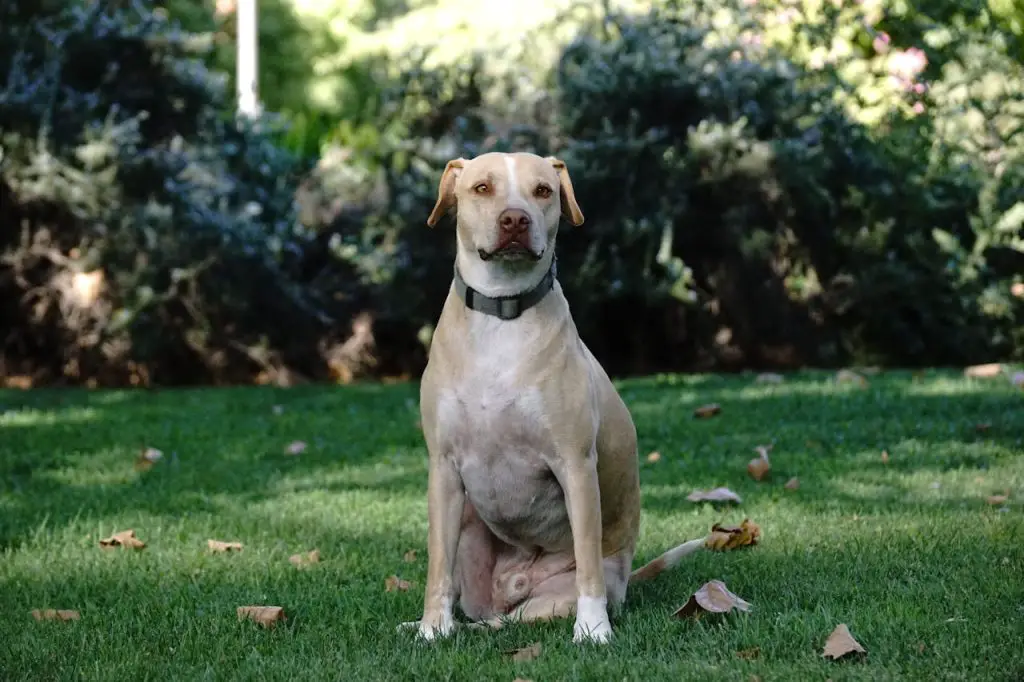
As you unravel the mystery of your dog’s floor-scratching, you’re fundamentally deciphering a cryptic map of their psyche.
Each scratch is a thread in a tapestry of instinct, emotion, and physicality.
Territory marking, anxiety, exercise, and attention-seeking are all intertwined.
By recognizing these underlying drives, you’ll uncover a narrative of your dog’s ancestral past and present needs, ultimately empowering you to redirect their scratching towards more positive outlets.




